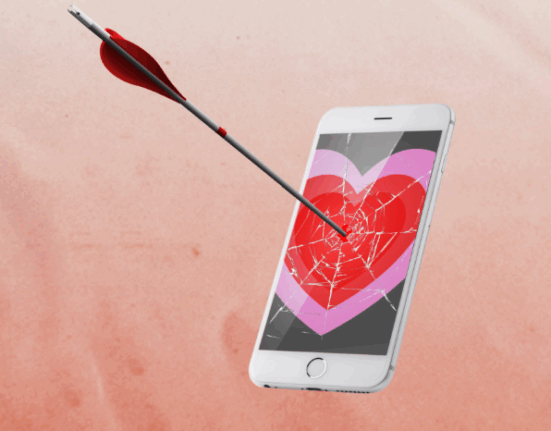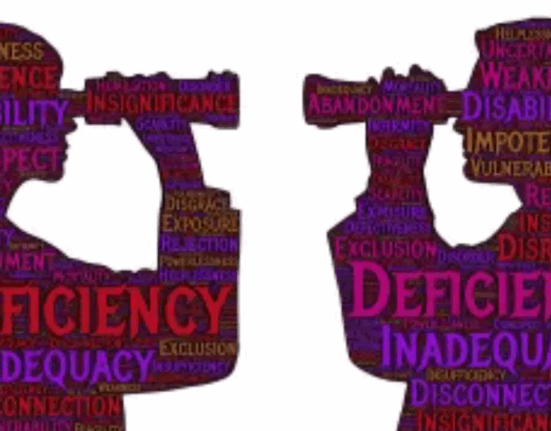Last Updated on July 18, 2024 by Rachel Hall
- Micro-Cheating: How to Tell If Your Partner is Involved According to Relationship Experts
- What is Micro-Cheating? The Definition of Micro-Cheating
- Signs Your Partner Might Be Considered Micro-Cheating
- Why Micro-Cheating Happens
- Impact of Micro-Cheating on Relationships
- How to Address Micro-Cheating in Your Relationship
- Preventive Measures to Avoid Micro-Cheating and Emotional Cheating
- Expert Opinions on Micro-Cheating
- Real-Life Examples and Scenarios of Micro-Cheating
- Frequently Asked Questions About Micro-Cheating
- Conclusion
Micro-Cheating: How to Tell If Your Partner is Involved According to Relationship Experts
In modern relationships, a new term has emerged that’s causing a lot of buzz: micro-cheating. Unlike traditional infidelity, which involves overt acts of betrayal, micro-cheating consists of subtle behaviours that can undermine trust and intimacy in a relationship. But how do you know if your partner is micro-cheating? In this comprehensive guide, we’ll explore what micro-cheating is, its signs, and how to address it to maintain a healthy relationship.
What is Micro-Cheating? The Definition of Micro-Cheating
Micro-cheating refers to small actions that aren’t quite outright cheating but still constitute a breach of trust within a relationship. These actions might not escalate into physical infidelity, but they can still hurt your partner deeply. It includes behaviours that fall under the micro-cheating umbrella, such as liking provocative posts on social media, secretive texting, and maintaining an online dating profile.
Signs Your Partner Might Be Considered Micro-Cheating
Social Media Behaviours
One of the most common signs of micro-cheating is suspicious activity on social media. This includes frequently liking and commenting on attractive people’s photos, following ex-partners, and engaging in flirtatious private messages. These social media interactions can indicate that your partner’s attention is straying from your relationship. For instance, every time your partner hits the “like” button on a suggestive photo, it might feel like a small betrayal.
Communication Patterns
Changes in how your partner communicates with you can be another red flag. Increased secrecy, such as hiding their phone or being vague about their interactions, might suggest they’re engaging in behaviours they know you’d disapprove of. Pay attention to how often they are texting and who they are texting. These subtle shifts in behaviour can be considered micro-cheating because they create trust issues.
Physical Interactions
While it doesn’t typically involve physical cheating, it can include behaviours like unnecessary touching or flirting with others. These actions might seem innocent, but they can be a betrayal and make you feel uncomfortable and insecure in the relationship. For example, massaging a friend or holding hands with someone else might not be considered outright physical cheating, but it’s still a breach of trust.
Why Micro-Cheating Happens
Psychological Reasons
It often stems from a need for validation or excitement. Some individuals might engage in these behaviours to boost their self-esteem or feel desired by others. Understanding the psychological motivations behind it can help address the root cause. As relationship expert Amanda Pasciucco, a sex therapist based in West Hartford, explains, “These small breaches of trust can lead to major trust issues and emotional wounds if not addressed properly.”
Relationship Dynamics
Problems within the relationship itself can also lead to micro-cheating. If one partner feels neglected or unappreciated, they might seek attention elsewhere. This is why maintaining open and clear communication is crucial in a monogamous relationship. Discussing your needs and feelings regularly can prevent misunderstandings and ensure both partners feel valued.
Influence of Social Media and TikTok
Social media platforms like TikTok have normalised behaviours that can be considered micro-cheating. The constant exposure to other people’s curated lives and relationships can create unrealistic expectations and temptations. Understanding the role of these platforms can help you navigate and set boundaries in your relationship. For instance, TikTok trends often showcase flirtatious interactions that might lead people to second-guess their partner’s behaviours.
Impact of Micro-Cheating on Relationships
The impact can be profound. It can lead to trust issues, erode intimacy, and create a sense of emotional distance between partners. Even if these behaviours don’t escalate to full-blown physical infidelity, they can still cause significant harm to the relationship. The constant worry and doubt can lead to a breakdown in communication and mutual respect, ultimately damaging the bond you share with your partner.
How to Address Micro-Cheating in Your Relationship
Open Communication
The first step in addressing this is to have an open and honest conversation with your partner. Express how their actions make you feel without accusing them. Using “I” statements, such as “I felt uncomfortable when I saw you liking those photos,” can help avoid putting your partner on the defensive. This approach fosters clear communication and understanding.
Setting Boundaries
Establishing clear boundaries is essential. Discuss what behaviours are acceptable and what crosses the line. This might include agreeing not to follow exes on social media or setting limits on flirtatious interactions. Clearly defining these boundaries can help both partners feel secure and respected in the relationship.
Seeking Professional Help
If it has significantly affected your relationship, seeking help from a licensed relationship therapist or relationship coach can be beneficial. They can help you and your partner navigate the underlying issues and rebuild trust. Professional guidance can provide tools and strategies to address and overcome the challenges.
Preventive Measures to Avoid Micro-Cheating and Emotional Cheating
Preventing these actions involves maintaining a healthy and fulfilling relationship. This includes regular communication, spending quality time together, and showing appreciation for each other. By fostering a strong connection, you’re less likely to feel the need to seek validation outside the relationship. Make sure to discuss your boundaries and ensure that both partners are committed to upholding them.
Expert Opinions on Micro-Cheating
Experts like Amanda Pasciucco, a sex therapist based in West Hartford, emphasise that micro-cheating can be just as damaging as emotional cheating. According to her, “These small breaches of trust can lead to major trust issues and emotional wounds if not addressed properly.”
Relationship experts like Jaime Bronstein and Morgan Anderson highlight the importance of setting boundaries and maintaining clear communication. Bronstein advises, “If you want to have a long-lasting, healthy relationship, having a conversation about the bounds of fidelity is a really important place to start.”
Real-Life Examples and Scenarios of Micro-Cheating
Understanding his actions can be easier with real-life examples. Imagine discovering your partner has been texting an old flame under the guise of “just catching up,” or finding out they have an active profile on a dating app. These scenarios highlight how seemingly minor actions can be considered micro-cheating and affect trust in the relationship. Such examples can help you identify similar behaviours in your relationship and address them accordingly.
Frequently Asked Questions About Micro-Cheating
- What is micro-cheating?
- Micro-cheating involves small actions that breach trust but don’t constitute full-blown infidelity.
- How do I know if my partner is micro-cheating?
- Look for signs like secretive behaviour, flirtatious social media interactions, and changes in communication patterns.
- Can micro-cheating lead to physical infidelity?
- While not always, micro-cheating can be a slippery slope that leads to more significant breaches of trust.
- How can we prevent micro-cheating in our relationship?
- Maintain open communication, set clear boundaries, and seek professional help if needed.
Conclusion
Micro-cheating is a subtle yet significant issue in modern relationships. Recognising the signs, understanding the underlying causes, and maintaining open communication can help you address and prevent micro-cheating. By fostering a healthy, trusting relationship, you can ensure that both you and your partner feel valued and secure.
If you suspect your partner is engaging in micro-cheating, don’t jump to conclusions. Instead, have a calm and honest conversation about your feelings and concerns. Setting boundaries and seeking professional guidance can help you navigate this complex issue and strengthen your relationship. By following these guidelines and understanding the nuances of micro-cheating, you can maintain a healthy, fulfilling relationship and prevent small breaches of trust from becoming major issues.

Rachel Hall, M.A., completed her education in English at the University of Pennsylvania and received her master’s degree in family therapy from Northern Washington University. She has been actively involved in the treatment of anxiety disorders, depression, OCD, and coping with life changes and traumatic events for both families and individual clients for over a decade. Her areas of expertise include narrative therapy, cognitive behavioral therapy, and therapy for traumatic cases. In addition, Rachel conducts workshops focusing on the psychology of positive thinking and coping skills for both parents and teens. She has also authored numerous articles on the topics of mental health, stress, family dynamics and parenting.








Leave feedback about this